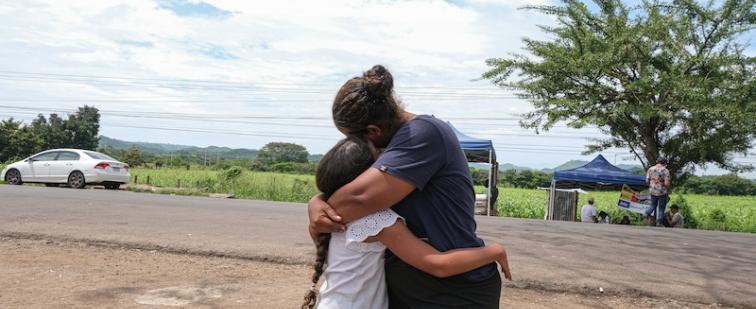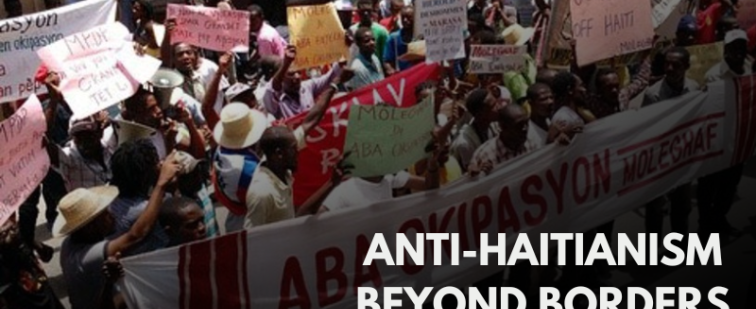Home
For residents of El Salvador’s northern department of Cabañas, 2009 was a year fraught with political high drama that reached a tragic climax in December with the assassination of two anti-mining activists. A public commemoration of their work, which marked the start of 2010, was as much a statement of solidarity as one of mourning.
After years of criticism and months of campaigning by media activists, Lou Dobbs finally made his exit from CNN. On the November 11 edition of Lou Dobbs Tonight, the virulently anti-immigrant primetime host announced his abrupt departure from the network, well before his contract was up. Although CNN president Jonathan Klein described the split as “extremely amicable,” it capped months of intense pressure on the network to oust Dobbs; word later leaked out that he was paid an $8 million severance to leave early. Two coalitions had launched efforts to get the host removed because of his xenophobic rhetoric: Basta Dobbs, which targeted CNN, and Drop Dobbs, which aimed at advertisers. Celebrating Dobbs’s departure, Roberto Lovato of Basta Dobbs declared: “We are thrilled that Dobbs no longer has this legitimate platform from which to incite fear and hate.”1
Since the June 28 military coup in Honduras, in which President Manuel Zelaya was deposed, U.S. news reporting has been marred by pro-coup bias, inaccuracies, and incomplete coverage. This was particularly evident in four ways: false claims that Zelaya had sought to extend his term in office; claims that a plurality of Hondurans supported the coup; imbalanced reporting of U.S. congressional opinion on the coup; and under-reporting of repression in Honduras under the coup government.
Beginning his fourth year as president of Ecuador, Rafael Correa confronts a major challenge from some of the very social actors that propelled him into office. In an address to the country in early January, Correa expressed his ire with a "coming series of conflicts this month, including indigenous mobilizations, workers, media communications, and even a level of the armed forces."
Sebastián Piñera's victory has no doubt moved Chile's politics to the right, but it may have also opened up the country's politics to new political forces. In this sense it is similar to the victory of Mexico's former president Vicente Fox in 2000. Fox, a member of the conservative National Action Party (PAN), broke the 71-year rule of the Institutional Revolutionary Party (PRI) and established a fundamentally right-wing government. But his victory also opened the landscape to a variety of new political actors.
Following the modern recipe for corporate enterprise, the directors of Mexico's increasingly powerful murder-for-hire firm, the Zetas, have begun to diversify from the company's principal activity of providing armed enforcement for the drug-trafficking Gulf Cartel. According to U.S. and Mexican officials, the group has gone into the lucrative business of stealing and selling contraband gasoline. It steals from Mexico's nationalized petroleum company PEMEX, and resells to Texas oil companies, including one run by a former Bush administration insider.
The Obama administration appears to be quietly relaxing a five-year Bush-era ban on Cuban cultural exchanges. New York City recently hosted its first Cuban band in five years, after the group Septeto Nacional became the first to win a visa that allowed it to accept a booking there.
Late December, the administration of Peruvian President Alan García rammed through a final report of the special commission to investigate and analyze the violence that erupted last June 5 in Peru's Bagua province. The report of the Commission Of Inquiry has been widely criticized as an embarrassing attempt to validate the government's version of the root causes of the events.
On November 29, 2009, Porfirio "Pepe" Lobo was declared the winner of the Honduran Presidential election, collecting 56% of the votes cast. Under ordinary circumstances, the center-right politician's electoral victory in this small, impoverished nation would hardly garner notice from all but the keenest observers of the region's political scene. But for observers in Latin America, where tremendous strides have been made in overcoming the legacy of political violence and military dictatorship - accompanied in many cases by the empowering of popular sectors - what transpired in the run-up to the election created circumstances that were far from ordinary.
Last February, some 18,000 Guatemalans, mostly survivors or relatives of victims of the state-sponsored terror of the 1970s and 1980s, gathered in Guatemala City's Plaza of the Constitution to commemorate the "Day of Dignity for the Victims of the Internal Armed Conflict." There, they heard President Álvaro Colom publicly accept the findings of the UN report that documented the terror. This, together with Colom's official apology on behalf of the Guatemalan government and armed forces, were framed by the image of an angel with wings formed of the shoulder blades of victims of the violence. The angel has now become an iconic image of the struggle for human rights in Guatemala and internationally.












